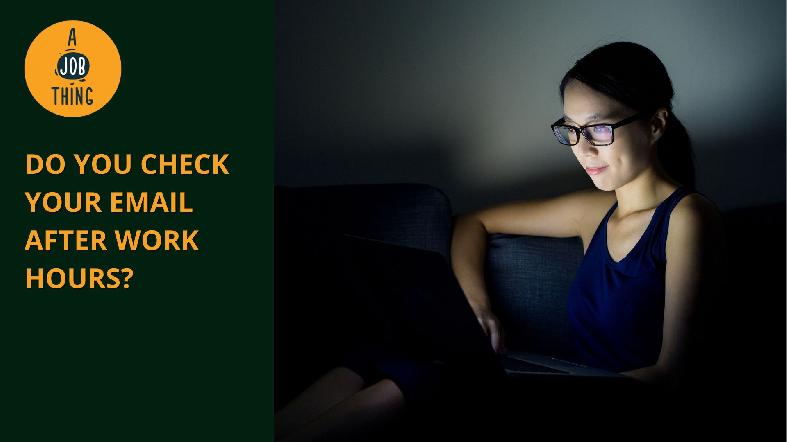
Do You Check Your Email After Work Hours?
Are You Hiring?
Find candidates in 72 Hours with 5+ million talents in Maukerja Malaysia & Ricebowl using Job Ads.
Hire NowIt may seem like a small matter, but when you check your mail after work hours, and it becomes a habit, it may harm your mental and physical health.
What's the harm in responding to a few emails in the night? Perhaps something important comes up, or we are just trying to get ahead for tomorrow. Being online and available at all times is also how we show our work ethic and professionalism.
However, the pervasiveness of digital communications in our daily lives is not as benign as we believe.
A new study reveals how common after-hours communication is and how harmful it is to our mental and physical wellbeing.
The research
Researchers from the University of South Australia studied how digital communication affects job stress, work-life balance, health, and sleep in the university sector.
From June to November 2020, they polled over 2,200 academic and professional staff at 40 universities. They focused primarily on universities, owing to the sector's rapid technological advances and the relevance of universities to economic, social, and cultural prosperity.
The findings
The researchers discovered high levels of stress and a large amount of communication after hours, including:
- 21% of respondents said their supervisors expected them to reply to work-related SMS, calls and emails after work hours,
- 55% sent digital communication about work with coworkers after work hours,
- 30% sent work-related digital communication to coworkers on the weekend, expecting a reply the same day.
Workers who had managers expecting them to reply to work messages after hours reported higher levels of psychological distress (70.4% compared to 45.2%) and emotional exhaustion (63.5% compared to 35.2%) than those who did not. They also claimed physical health issues like headaches and back pain (22.1% compared to 11.5%).
Not just the boss, but coworkers too
When it came to communication amongst colleagues, they discovered the same pattern.
Employees who felt obligated to reply to work messages from coworkers outside work hours indicated higher levels of psychological distress than those who did not (75.9% compared to 39.3% ). They also showed higher levels of emotional exhaustion (65.9% compared to 35.7%) and physical health issues (22.1% compared to 12.5%).
Although the researchers surveyed university staff, this is likely to represent a societal problem of out-of-work digital communication.
What it all means
The personal and social consequences of blurred home-work boundaries are severe. Employees' recovery from work is hindered psychologically and physically when they accept calls or respond to emails at home.
Being in a constant state of hypervigilance while waiting for work notifications at home can impact metabolism and immunity, making one vulnerable to major health issues, including infection, high blood pressure, and depression.
Furthermore, a recent World Health Organization and International Labour Organization study suggests that long work hours may increase the risk of cardiovascular disease and stroke.
Another issue is that when we receive work calls or emails after hours, we have less time for recovery activities like social interaction, physical exercise, and spending time in natural environments.
These are essential activities for maintaining physical and, especially, psychological wellness. The personal and social implications of work intrusion into home life can harm family connections and community supports such as volunteering.
What can we do?
We can concentrate on the present issue and limit the extent of digital connectivity outside of work hours. Negotiating work conditions to address the problem is an excellent place to start. A "right to disconnect" policy protects your staff as well.
However, while these industrial regulations prohibit managers from communicating, they will not alter the behaviour of coworkers who hassle one another. Or the internal pressure that many of us feel about working after hours.
Professor Maureen Dollard, a workplace specialist, contends that the issue of digital connectivity outside of conventional work hours represents a larger issue concerning workplace culture and psychological wellness. Employees will feel more pressure to meet unreasonable deadlines if an organisation prioritises productivity over psychological wellbeing.
Finally, our issue with after-hours emails and messaging reflects bigger social challenges related to productivity pressures, job insecurity, and dwindling work resources.
Source: The Conversation

